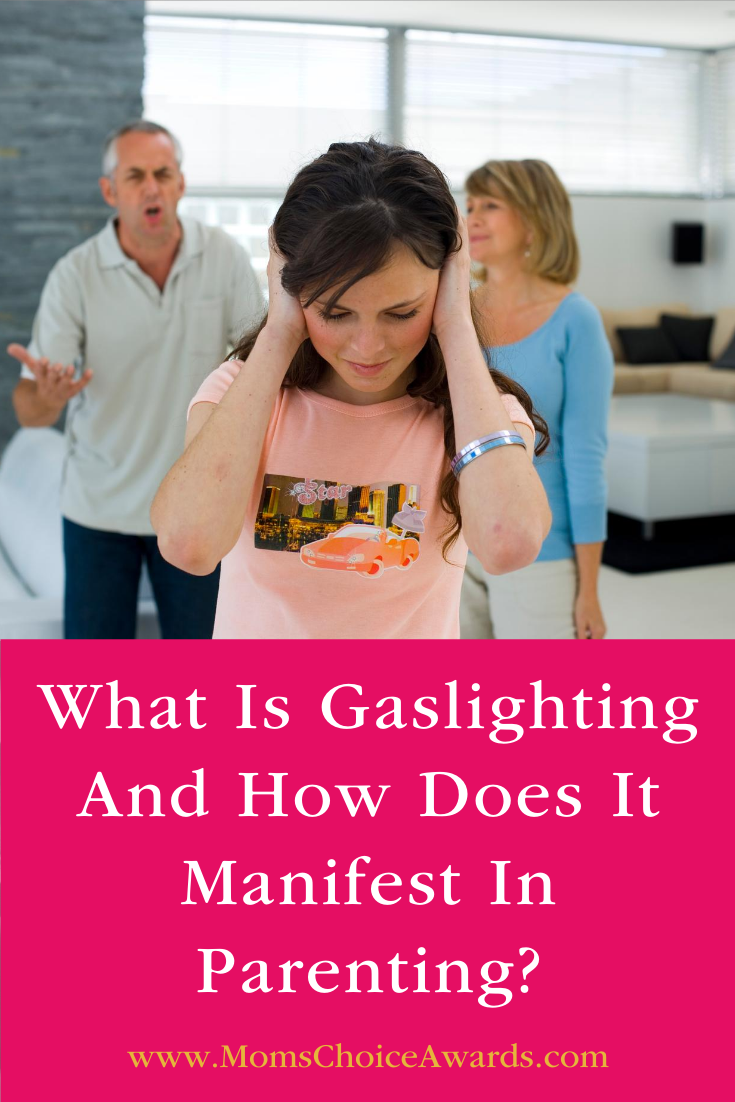 Ivana Davies
Ivana Davies
Blogger
Facebook | Pinterest | Instagram
WARNING: Sensitive topic. Reader discretion is advised.
When the term gaslighting is brought up in conversation, many people don’t seem to know what it actually means and tend to follow it up with the question of What is gaslighting?
Well, gaslighting is a term that might sound like it comes straight out of science fiction or a psychological drama. It’s a form of psychological abuse where one person manipulates another into thinking things aren’t how they think they are.
 To put it in simpler terms, gaslighters make their target think he’s crazy. They make him start questioning his sanity and everything else in his immediate surroundings until the desired effect is achieved.
To put it in simpler terms, gaslighters make their target think he’s crazy. They make him start questioning his sanity and everything else in his immediate surroundings until the desired effect is achieved.
It’s a term that got its name from the titular movie “Gaslight” where the husband (Charles Boyer) psychologically tortures his wife (Ingrid Bergman) into gradually believing she’s crazy.
A scary thought, isn’t it? But what if I told you that it’s not just science fiction.
Gaslighting is very much a real thing and it happens under our noses more often than we’d think. Whether it’s at work, with friends, or even at their own homes, victims of gaslighting can be hard to spot because they themselves don’t even know that it’s happening to them.
That’s the harrowing “charm” of the technique that makes it appeal to all kinds of abusive people, sociopaths, and those who often exhibit the traits of a narcissist.
Some people might even be doing it without realizing that they are. This is most common in a parent-child relationship – something we dub “codependent parenting.”
There, the goal of this psychological manipulation is to make the gaslightee (in most cases, the child) solely dependent on the gaslighter (the parent).
As I’ve said, gaslighting someone is mostly done subconsciously due to this innate parental instinct to protect our own kids, but sometimes it can grow out of control and turn into an obsession. This is when parents start believing that they know what’s best for their child and that only their say matters.
It’s a point some parents reach where their love turns into a form of emotional abuse – where the child slowly loses his sense of self until he’s nothing more than mamma’s good little boy.
It’s when parents believe themselves not as tutors or figures meant to offer guidance, but rather masters that demand obedience and think of themselves as the heroes in someone else’s story.
Their child’s in this specific case, and it takes to them a lot faster than it would with any other victim of gaslighting. That’s because children are so much more impressionable – they are trusting and will believe anything a family member says.
Licensed family and marriage therapist Cara Itule explains the root for this behavior in parents could lie not only in them being narcissistic (those with an antisocial personality disorder), self-involved, immature, or of low-intelligence, but it’s often that they’re just so overwhelmed or simply uneducated in the ways of healthy parenting practices.
In reality, no parent wants this to happen and should you find any of the gaslighting behaviors reflecting your own methods, it’s time to stop and re-evaluate them as quickly as you can before it’s too late.
The 6 Signs Of Gaslighting
As mentioned earlier, when asking What does gaslighting mean? it’s something rather vile that can be tough to spot, and you may even be doing it subconsciously. You may even be a victim of it in yourself if you’re part of an abusive relationship yet unable to see the signs.
But, before you can even begin recognizing either side of it in yourself, you must first understand the potential scenarios that reflect gaslighter behavior. And, you must understand that these things shouldn’t be disregarded as mere coincidence or a harmless gesture intended for the future well-being of your child; that is simply not the case.
Trust me, I’ve had to go through a phase of that as the victim myself from one of my parents and the receiving side doesn’t see it as such.
1. Berating your kid for every little mistake
Nobody likes it when their temporary shortcomings get emphasized and they end up getting called names, but that’s just what tends to end up happening.
While most parents will wave that off as a joke, it does mean a lot to our kids. Calling him dumb for not managing to pass an exam or a clumsy oaf for failing to perform on a physical test will affect his level of self-esteem, dimming it down to a negligible level while increasing his self-doubt.
The reason for this is because he doesn’t know any better. He’ll trust you since you’re the one who’s raising him and teaching him what would be considered abusive behavior and what wouldn’t. Despite this falling into the former category, he won’t know the difference since it’s likely that that bar is skewed for him.
2. Painting a perfect, albeit exaggerated picture of yourself for your child to look up to
Usually, a follow-up of the first is when the gaslighter parent starts explaining just how amazing and perfect they were when they were their child’s age, cherry-picking only their greatest moments while leaving the bad ones out.
And to make matters worse, they then compare it to similar situations that their child was in, trivializing the child’s achievement in the process while expecting him to perform to an unattainable standard.
Unattainable in a sense that it’s been made flawless. No human is perfect and the parent shouldn’t expect their child to be.
They should accept him for who he is and help him grow as a person in a healthy manner, rather than giving him some toxic ideal to strive toward – one that he’ll never achieve. That, in turn, will end up making him miserable.
3. Maintaining that flawless image at the expense of your child
Scaling the gaslight effect up further is the third warning sign, which is when the parent starts deflecting any of their own shortcomings by blaming it on their own child.
Any spats that they might end up having with the neighbors or if they had accidentally hit the neighbor’s trash can over or even shoplifted, they’ll start blaming it directly on their child.
Okay, maybe not as serious as shoplifting, but other things that will start off as minor and then just scale up.
Depending on the child’s age and exposure to this treatment before, he’ll be the one to actually believe that he’s done something wrong and begin apologizing in the parent’s stead. He’ll start doubting himself and his own sanity at one point if he’s been severely exposed to this kind of emotional abuse already.
The parent then keeps their idealistic image and continues the torture, unaware of how they’re manipulating their child like a puppet on a string in an elaborate stage play.
4. Never apologizing for your mistakes
Because gaslighting parents think they can do no wrong, they believe that they don’t make any mistakes and thus never end up apologizing for wronging the child in the first place.
This creates a toxic environment for the child in which he thinks he’s the one making these mistakes, that he’s the one just trying to shift blame – leaving him ever the more timid and complacent.
5. Creeping into your child’s social life
There is nothing worse than when parents impose on their children’s social circle. While yes, regulating it so that your child doesn’t hang out with some extremes of our society is fine – evident bad seeds – but there’s a limit.
Not everyone is bad for him and some parents fail to understand that. They don’t understand that the child’s idea isn’t to just hang out with his parents all the time; he wants (and needs) to meet new people, share new experiences, and branch out.
He wants to be independent at some point, and that’s where the problem starts with many gaslighter parents. They’re afraid of their child growing up, of slowly getting closer to full independence, so they decide to control that facet of his life – often unintentionally stunting his personal growth.
They’ll start sowing seeds of doubt about how the child’s friends have been saying bad things about him, throwing it around the dinner table nonchalantly or similar to avoid suspicion. And the child will end up believing that – because why would his parents lie to him, right?
This then immediately sours his personal relationships, regardless if they were a recent romantic relationship or best friend. Some kids will rebel, but those who’ve already been gaslightees for a long time to the gaslighter parents will just fall in line, believing that parents know best. It’s a sad thing to see.
6. Using confusion as your strongest tool
Once the gaslighter parents have their child deep enough in this horrid gaslighting nightmare, they’ll deliver the finishing blow by making the child question his own memory and own reality.
They’ll do this by making stuff up and claiming that it has been that way all this time, that it’s the child who’s in the wrong and that he’s trying to accuse his parents of something. Because what is gaslighting but a psychologically abusive way of inducing confusion and insecurity within the gaslightee?
Once the parent manages to convince their child that their truth is the only truth, that’s when they’ve gone way too far and have probably permanently damaged their child’s sense of self.
It sounds like a horror story waiting to happen, right? Well, as fictional as it may sound, these scenarios are very real and a lot of parents are doing it without even knowing that they are, and their kids are unaware of this since this is all they know – it’s their “normal.”
It’s a slippery slope – one that’s hard to come back from if you don’t pay attention and spot this in time.
How To Recognize A Victim Of Gaslighting
Now that you have an idea of just how gruesome yet so eerily subtle gaslighting techniques can be and the level of psychological abuse a gaslighter can assail one’s psyche with, you are slightly better equipped. But how will you recognize if your child was gaslighted without either of you realizing it?
Well, there are certain traits that develop in victims of gaslighting that you might recognize. The sooner you do, the faster you can act on it to hopefully fix it before it affects more of your child’s life.
Some of the most common signs of a gaslit victim are:
– Feeling empty or incomplete, like he’s not himself;
– Being way too critical or self-conscious of his actions and blaming himself for everything;
– Overly disregarding his well-being and self-care to accommodate the wishes of others;
– Defending the gaslighter by making up excuses and sometimes even lies to cover up their behavior;
– Being unable to make decisions without the help of the gaslighter;
– Never finding the time for others or simply canceling plans to be around the gaslighter;
– Finding it difficult to trust anyone else other than his parent/s;
– Being paranoid and believing that everyone else is out to get him or that he’ll mess something up before it even happens.
How To Fix It
While difficult to fix the longer this behavior has been going on for, there are still ways and methods you can undertake to try and mend what has been broken. Your child will definitely be grateful for it.
Some of these steps may seem small, but they’re all equally relevant.
– Admit to him that you’ve made mistakes while being un/aware that you were actually doing them;
– Get some professional help from a psychoanalyst or similar to evaluate the reasons you’ve ended up doing what you did while being un/aware of these actions. Maybe there was something in your past that left a sort of trauma that led you to repeating the same mistakes;
– Get some help for your child as well because having to cope with the effects of gaslighting is no easy feat. He’ll need time to recover and get back to some semblance of normalcy;
– Learn from your mistakes and do not repeat them, otherwise all the above-mentioned steps are going to end up worthless.
Final Words
What is gaslighting if not a practice employed most often by those who have an insurmountable need to control everything in their lives – even the people closest to them.
It is something that, though subtle, can become worse and worse as time passes until it affects the victim’s mental stability and turns them into nothing more than a shell of their former selves.
It’s also something a person might be doing without being aware of it, instinctively using gaslighting methods as a defense mechanism – a means of preserving control. The most common case is a parent with his or her child, or a situation between two romantic partners.
Whatever the case may be, I do hope that this has helped you be a bit more aware of this horrendous method and that you can save yourself and others close to you from the harmful effects of gaslighting.
If you feel like you may have exhibited some of these signs subconsciously or are afraid that they’re just bubbling beneath the surface, I’d suggest seeking help from a psychoanalyst or a mental health professional so you could get to the root of the issue before it’s too late.
Sometimes there are things people simply cannot overcome on their own, no matter how strong their will may be.
 About Ivana Davies
About Ivana Davies
Ivana Davies is a millennial mom of two wonderful kids. She used to work as a teacher, but now she’s a stay-at-home mom running her own blog, Find Your Mom Tribe, with the goal of uniting all moms into a supportive community, and providing insight into the everyday battle of motherhood. You can catch up with Ivana on Facebook and Pinterest.
To see more, view all posts by Ivana Davies here


 </div
</div



5 Comments on “What Is Gaslighting and How Does It Manifest In Parenting?”
It’s been challenging over the decades on how to describe my relationship with my Father, and, the relationship I experienced with my now ex wife. I’m so grateful for this article and now knowing that I have not been the one going crazy. It’s been the gaslighters with the mental health challenges. Not me.
Thank you for bringing me immense relief and peace of mind.
I have always hated parents that can’t swallow their pride a little and apologize to their kid when they are in the wrong. It doesn’t make them respect you less. It makes them respect you more.
These articles are wonder !!
Great tips
Best article on Gaslighting that I have read